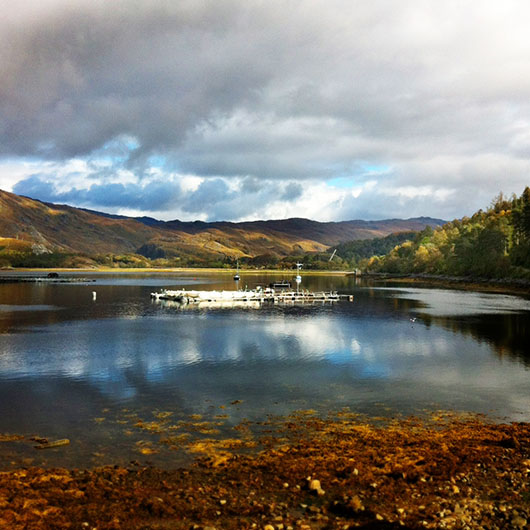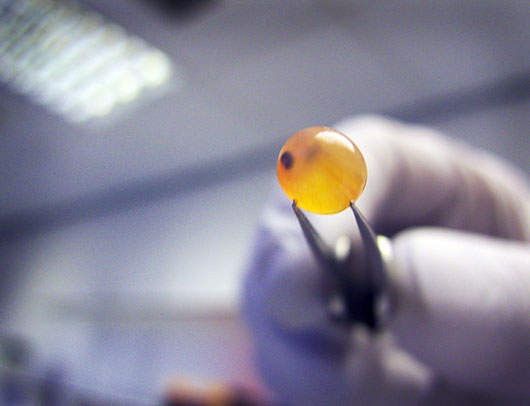Making Scottish salmon healthier

Scottish salmon farm, Argyll. Photo: Tom Ashton.
A new company that could improve the health of the Scottish aquaculture industry as well as the fish we eat, has been launched by the University of St Andrews.
The spinout company, led by experts at the University’s Scottish Oceans Institute (SOI), hopes to make the Scottish aquaculture industry – which already exports to 60 countries worldwide – even better.
The company exploits cutting-edge genetics technology developed by researchers at St Andrews. The team behind the new company, called Xelect, say that their work could lead to higher disease-resistance and ultimately a healthier end-product.
Xelect will primarily focus on the development of genetic markers which will pinpoint the most valuable of the natural variations which occur in all fish.
The first products are markers for superior meat yield and flesh quality in Atlantic salmon, which are now available for licensing worldwide. The company also has a strong pipeline of markers in development for other traits and species, and can offer other genetic services such as sex determination, stock tracing and disease identification.

Salmon egg. Photo: Tom Ashton.
Xelect was formed by Director of the SOI, Professor Ian Johnston and his former PhD student, Thomas Ashton. They will take on the roles of CEO and Co-Founder and Executive Director and Co-Founder respectively.
Professor Johnston said, “Put simply, in any population of fish, there are natural genetic variations, some of which lead to more valuable fish than others. By developing genetic markers for, say, meat yield in Atlantic salmon, industry bodies can select the fish they wish to breed from, using them as the founding population and therefore ensuring that all of the fish have a higher meat yield.
“Scotland has a hugely significant and world-class aquaculture industry which exports to around 60 countries and we see our work as another strand to make it even better.
“Our work could ultimately improve the welfare of fish and lead to more disease-resistant and stress-resistant fish. Indeed, some of the factors the aquaculture industry has been criticised for in the past will be addressed by this technology and, with half of all fish eaten across the world being produced from aquaculture, it’s vital that the end product is of optimum quality.”
Xelect has already entered into a licensing agreement with Norwegian company Salmobreed and its Scottish arm, Xelect is also in talks other companies with a view to concluding licensing deals for the markers in Chile.
The research leading to the formation of Xelect last month (February) was funded by the Biotechnological and Biological Research (BBSRC) with Follow-on Funding to support its commercialisation.
For more information, visit www.xelect.co.uk
ENDS
Category Business